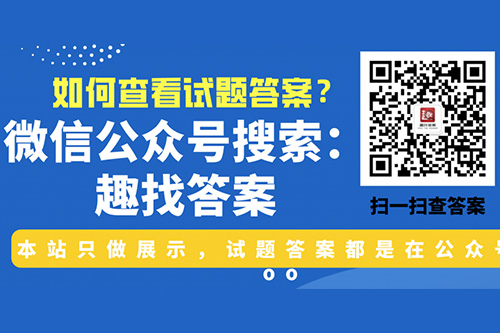高二英语周报课标2020-2021第八期答案,小编收集了高二英语周报课标2020-2021第八期答案的相关答案,没有答案的敬请期待!完整版的周报答案关注wx号:趣找答案
1. 阅读理解
FaceApp has taken the world by storm,
giving users the chance to see themselves age through its algorithm. 12.7
million people—some three million more than the population of New York City—reportedly downloaded it in one seven-day period last month.
Although the Russian app has
become known for its privacy issues, the more interesting lesson of our FaceApp
fling (尽情玩乐)is
what it tells us about our society—and our future
lives. It turns out we are more interested in aging than we realized. I'm
surprised by this. Most younger people are in denial (否认)about old age, doing almost nothing to prepare for it. We rarely
have a chance to plan for the future, with increasing time and financial
pressures. Those pressures bring sacrifices that we may not always want to
make: we can no longer afford to spend the time or the money needed to look
after our elderly parents.
As a family doctor, I can see
the loneliness epidemic developing. Elderly patients come to see me with no
particular illness, no clear medical issue. After a few minutes of the
consultation, I understand why: they're not sick, and often they don't feel
sick. They just need someone—anyone-to talk to.
Although loneliness has no
medical classification, the health effects are real: the result of loneliness
and isolation can be as harmful to our health as smoking 15 cigarettes a day,
and is more damaging than obesity. But loneliness does not come with nearly
enough health warnings.
So what next? Since 1980, we
are living on average 10 years longer. At the same time, people are having
fewer and fewer children, and they are having them much later in life. The
snake of a world class health service is eating its own tail; its care is
prolonging (延长) people's lives, but as the ratio of pensioners(退休人员)to working -age people increases, there are fewer taxpayers to fund
that very health service.
Into this void have stepped
NGOs, charities and volunteers. But in the long term, the only way to truly
help the oldest meters of our society is to go back to the traditional values
of intergenerational(两代间的) cooperation—often under
same roof. Ultimately, we will need to evolve towards a culture where elderly
care is treated the same as childcare, where employers recognize the duty of
someone with an elderly parent the same way they recognize those of someone
with a newborn child.
(1)The example of FaceApp is used to _____.
A . prove the popularity of it
B . explain the function of it
C . show the progress of technology
D . introduce the topic of aging and loneliness
(2)What makes elderly people without illness go to see their family doctors?
A . Desire to have the consultation.
B . Strong feeling of loneliness.
C . Unclear medical issues.
D . Questions to ask doctors.
(3)How can the oldest members be truly helped?
A . By being treated as children.
B . By going back to the traditional society.
C . By providing family care.
D . By living with other elderly people under the same roof.
(4)What can we learn from the passage?
A . The loneliness of elderly people needs more attention.
B . FaceApp's popularity proves it has no security problems.
C . Health service lacks fund because of prolonged peopled lives.
D . FaceApp is helpful in dealing with elderly peopled loneliness.